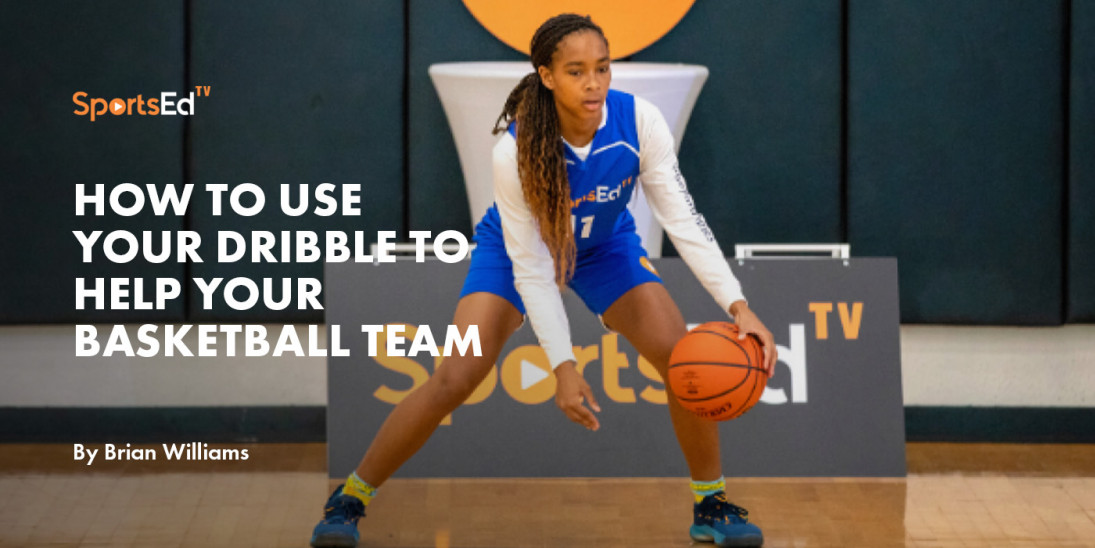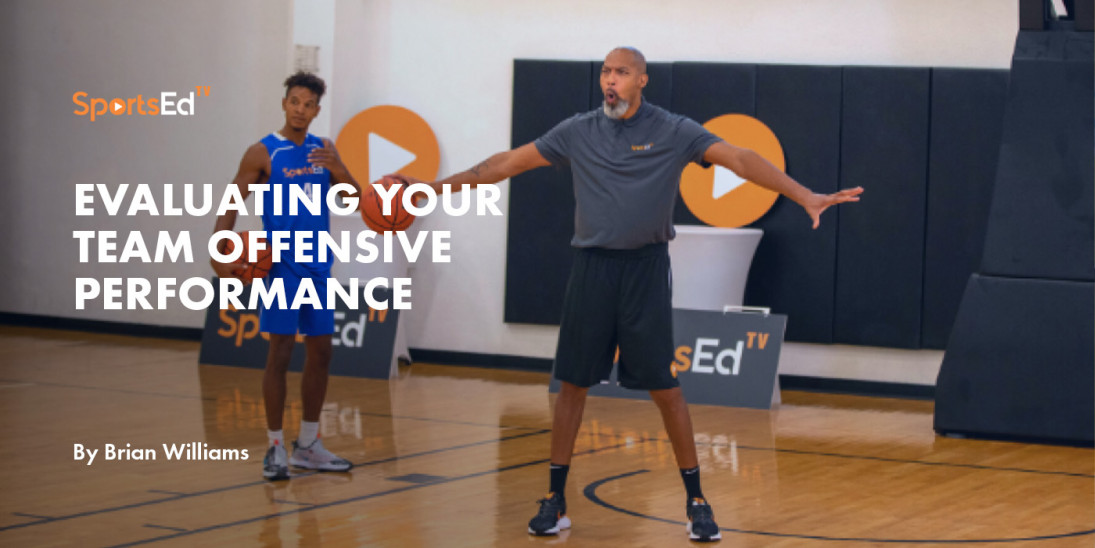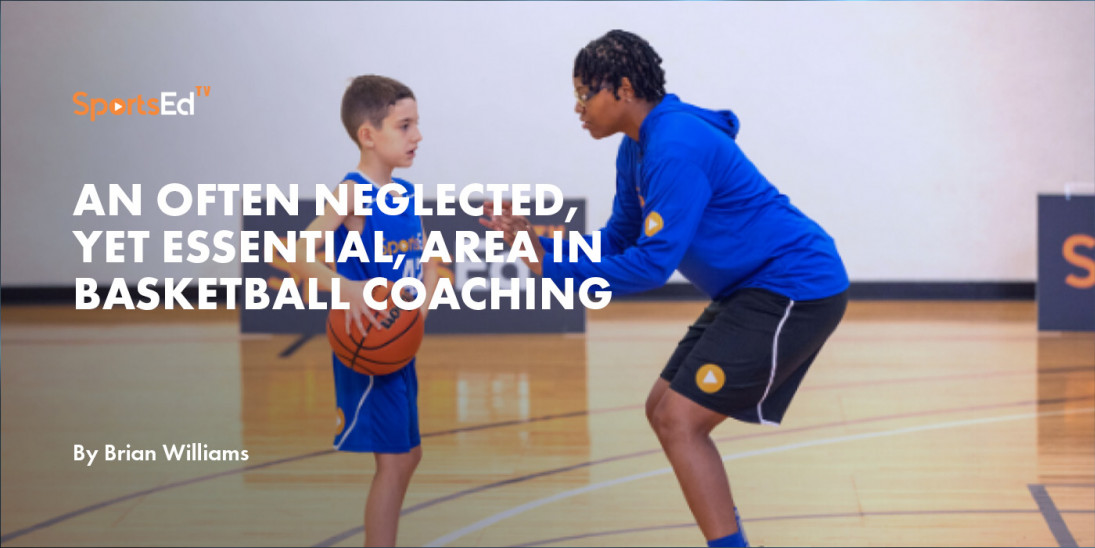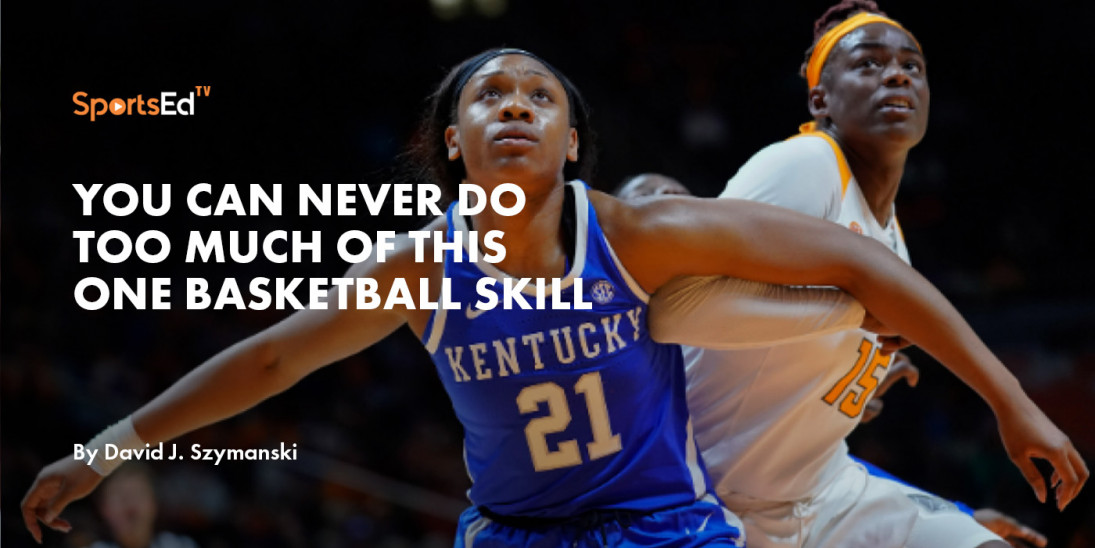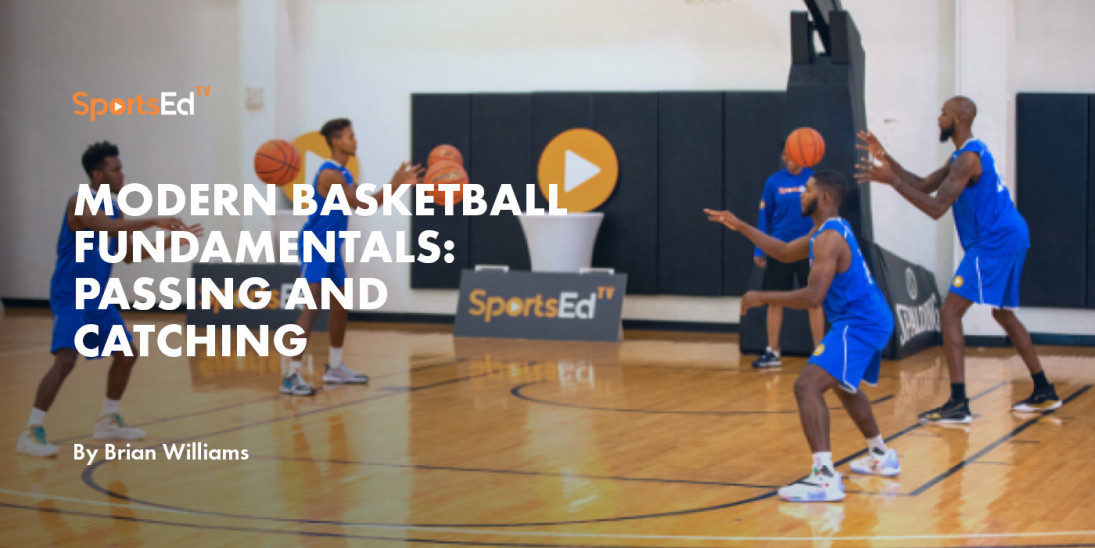Basketball
Welcome and thanks for visiting...

How To Plan An Effective Basketball Practice
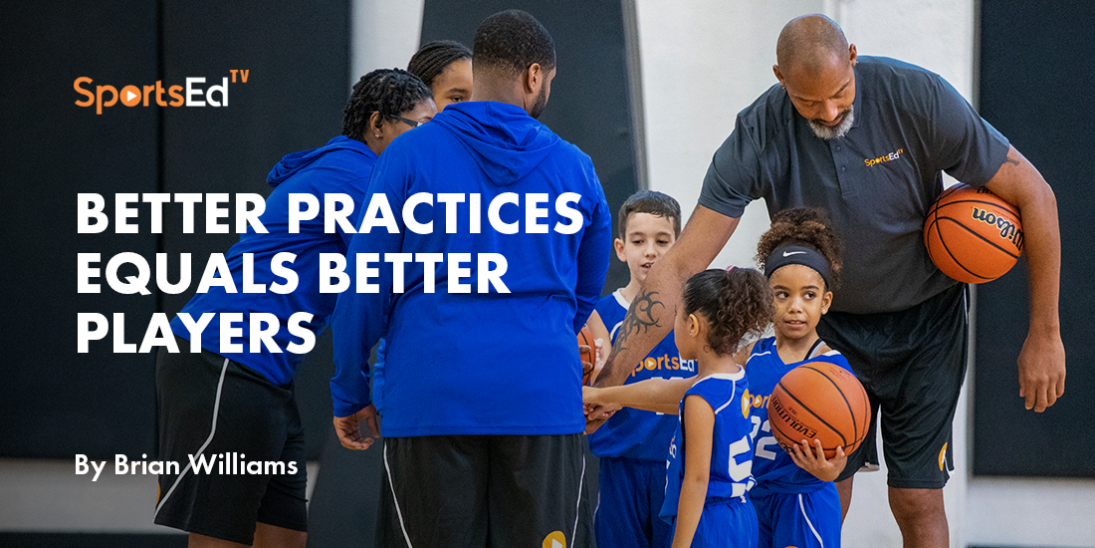
SportsEdTV Basketball is committed to bringing athletes, coaches, and parents pro-level basketball education videos for FREE. All levels, anywhere, anytime. Check out our full instructional library and sign up to join our basketball community!
Authored by Brian Williams, Founder of The Coaching Toolbox
After retiring from education, Brian Williams created The Coaching Toolbox in 2008. The site is a free resource site for basketball coaches of all levels. The one site for coaches has grown into an entire network of sites that generated 4.3 million page views from coaches in 2020. He publishes daily content for coaches.
Brian Williams was a high school math teacher, basketball coach, and athletic director for 26 years.
Want to know the secret to winning more basketball games?
That’s easy… Get better players!
Whether you can recruit or not, the best way to help players get better is to have better practices. To have better practices, you must put lots and lots of sustained and meaningful thought into planning your practices.
This article will dig a lot deeper than planning your warmup, your drills, your conditioning, and your scrimmage time. Every coach of every team does those things. There is a lot more that is involved with having practices that are truly transformative and that will raise the performance level of your team.
You have to be intentional about everything you do in practice. Why are you planning what you are planning? Is it because that’s what you learned from your coaches when you played or what is going to challenge your team to improve every day?
As you develop your yearly and week practice plans, give focused thinking time to and put in writing these two aspects of your program.
First, what growth do you want your players to make—on and off the court.
Second, what does your team need to be able to execute on game night that will give them the best chance of winning?
I am going to give you the questions you need, and let you come up the answers that best fit your situation. OK, I will give you some examples and suggestions, but the purpose of the questions is for you to take my questions, provide your own answers, and transform the group of individuals that shows up for the first day of practice into a true team that comes as close as possible to achieving its potential both on and off the court.
Think deeply about your answers to these questions, then PUT YOUR OWN ANSWERS ON PAPER OR IN DIGITAL/ELECTRONIC FORMAT!!
Ideas and beliefs don’t help you to improve unless they are tangibly flushed out in writing and then become a part of a system and plan to improve!
Here we go:
1) How will we develop our ability to perform well under the pressure at the end of a close game?
We end every practice with an end of game pressure situation. We put a specific amount of time remaining on the game clock, Put the score, the foul situation, possession arrow, timeouts remaining and play out the scenario
2) How will I teach our players to move on and not dwell on a bad play that they make? A bad play that a teammate makes? A call that an official makes that goes against us? Something that an opponent says or does to get under our skin? What else could take away from our focus on playing the game?
The Duke men’s program has a two word saying that they use to remind each other to forget the scenarios just mentioned. They say “Next Play!” That is a quick way to express. Forget what just happened because if you focus on that, you won’t be concentrating on what is about to happen. Next Question!
We also have our assistant coaches officiate and make intentional bad calls (sometimes they make bad calls when they are not intending to! ? ) from time to time so that we are practicing that scenario. Of course, you need to make sure that the players are aware that you are purposely making questionable or outright bad calls so that they will have practiced how to handle it when it happens in a game. We all know that it WILL happen in games.
Reminder: The comments after the questions are merely ideas to get you thinking about what your answer would be.
3) How am I going to make practices tougher than games so that my players don’t get overwhelmed on game night?
We create overload drills such as:
- Running our motion offense without allowing players to dribble to emphasize the execution of screens and cuts away from the basketball to get players open to receive a pass. Of course, if you run a dribble drive or ball screen offense, this is not a good strategy for you.
- Not calling all fouls committed by the second team to teach the first team to be strong and tough with the basketball in case the officials miss an occasional foul call in the game.
- Having 4 defenders guard 5 offensive players. Leave one player unguarded. This teaches the other players to help when a teammate is beat and needs help. It is also a good way to prepare to play against a great player that you are going to need to give a lot of help on.
- Have 2 players guard a dribbler. Either as a drill or by playing 6 on 5 if you have a player that you are wanting to challenge to improve driving skills.
- What other overload drills can you create to make practices for your players harder than games?
4) What must I do to establish, sustain, and protect an atmosphere of the relentless pursuit of continuous improvement in practice?
That might sound like an over-the-top statement, but trust me, improvement doesn’t just happen, it must be purposefully pursued. Practice without improvement is meaningless. If you are asking your players to give you an hour or two of their time every day during the season, you owe it to them to have the best plan for their improvement that you can have.
The only ways to improve a basketball skill (team or individual) is to execute it quicker (game pace), with better technique, or for a longer sustained period. To achieve growth in those areas, players must push themselves beyond their current limits and out of their comfort zones. While they are pushing past those limits, they are going to make mistakes. You must create the atmosphere of supporting each other’s mistakes and being comfortable enough to accept and learn from mistakes that are made while stiving for improvement.
5) What will I do to make sure that I as the coach am at my best for each practice?
To provide the leadership that your team needs to get better every day, you need to be at your best mentally, emotionally and physically. You cannot expect your players to ever have more intensity, enthusiasm, focus, or concentration than you bring yourself. The most effective leadership is leadership by example.
That means you as the adult leader must take care of yourself during the season. You must get enough rest. You have to eat properly and hydrate yourself. You must take some time to get away from being a coach to allow yourself to recharge mentally and emotionally.
You can never bring out the BEST in others, unless you are at your BEST yourself.
6) How many and what specific drills do I need to do to teach and rep the skills we need to improve our individual and team skills?
The best coaches have a drill book which lists every drill, it’s purpose and the rules and structure that are used to execute the drill. Don’t have one! Start yours right now.
It will be a dynamic book that is constantly changing as you find new drills that help your players to improve, as you tweak your drills, add variety to your drills, and as you change your offensive and defensive systems.
The drill book helps you to develop clarity as to what the purpose of each drill is and forces you to consider if what you are currently doing is the best that you can be doing.
7) What are the things that will happen the most often in our games?
It seems like common sense, but as the saying goes, common sense is not always common practice. Only you know what style you play and will play against, so you will need to make the final list, but here is a list of things that are fairly common things that happen a lot at all levels of play. Become great at the things that happen a lot, by doing meaningful reps in practice for each of these skills
Edit this list as needed for your coaching situation.
- Shooting. Individual players need to get up a lot of game pace, game spots shots, with proper technique shots in practice.
- Rebound. 5 players on the floor for your team times 50 to 100 missed shots and free throws depending on where you coach means 250 to 500 rebound opportunities per game
- Defensive closeout to guard the ball or to go from one defensive position to another. Again, 5 players x how many possessions you defend, x how many times the ball moves = a LOT OF CLOSEOUTS every game.
- Converting to defense. No matter how good you are in your half court defense, if you give up points before your defense is set, it won’t matter much.
- Defending the ball being dribbled.
8) What will I do to try and change things up when we get off to a bad start to practice?
I have a list of steps that I will tack to correct a practice that is not going well. Some of the ways I try to turn around a bad practice are things like: stopping practice to huddle up and asking the players talk about what is happening and how we can fix it; going over our practice definite dozen (our practice values that we create as a team) to evaluate how well we are meeting them, changing the scrimmage teams, stopping to do a drill or two that the players like or that brings a lot of energy to the gym, stopping to play summer camp games like knock out.
The idea is to have well thought out strategies to go to when you the players aren’t getting anything out of the practice. That way you aren’t doing your thinking when you are frustrated and under the pressure of the clock.
9) What experience do I want our players to have through the game of basketball?
I saved the most important for last. If basketball is only a game, then it is a waste of time. Life skills such as teamwork, all out effort, handling adversity, sportsmanship, discipline, and any other quality you can teach with sports do not teach themselves. As a coach, you have a responsibility to your players to #1 know what life skills you want players to develop, #2 know how you will teach them in practice, and #3 how you will measure your success.
What players really want out of the season is to have fun and enjoy it. It is a job for us as coaches, but it is a game for our players. Yes, it is an extremely difficult balancing act to provide a fun program, a program that teaches lessons beyond basketball, and wins games on the court. Hey, no one said that coaching was easy! The way to be able to make all three of those things happens begins with thinking, then writing, then applying them in practice.
All nine of these areas are very important to address as you plan your practice sessions. They aren’t the only ten considerations, and maybe they aren’t even the most important considerations for planning a practice. But, they should give you some ideas as to how to focus your planning on continuous daily improvement.
All teams practice shooting, passing, guarding, dribbling, rebounding, and all of the other fundamentals of the game. But in the end the success of your practices is not what you teach or what you drill. It is how you teach, how you drill and what you emphasize that will determine how much your team improves during your practices.
